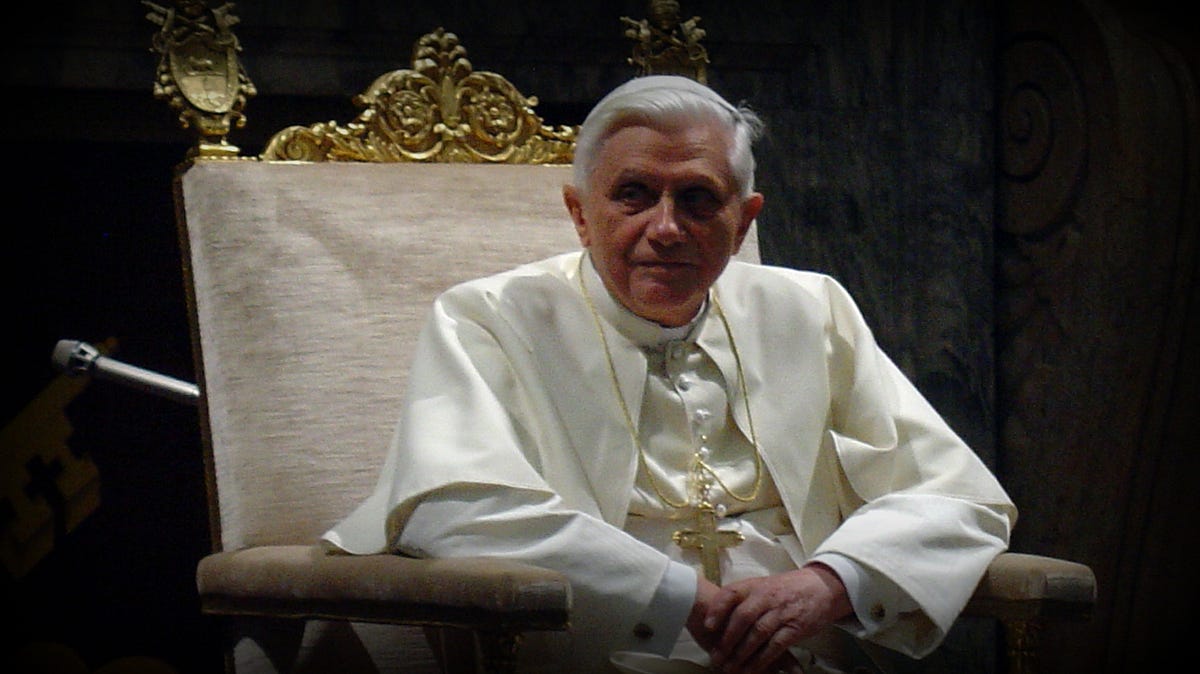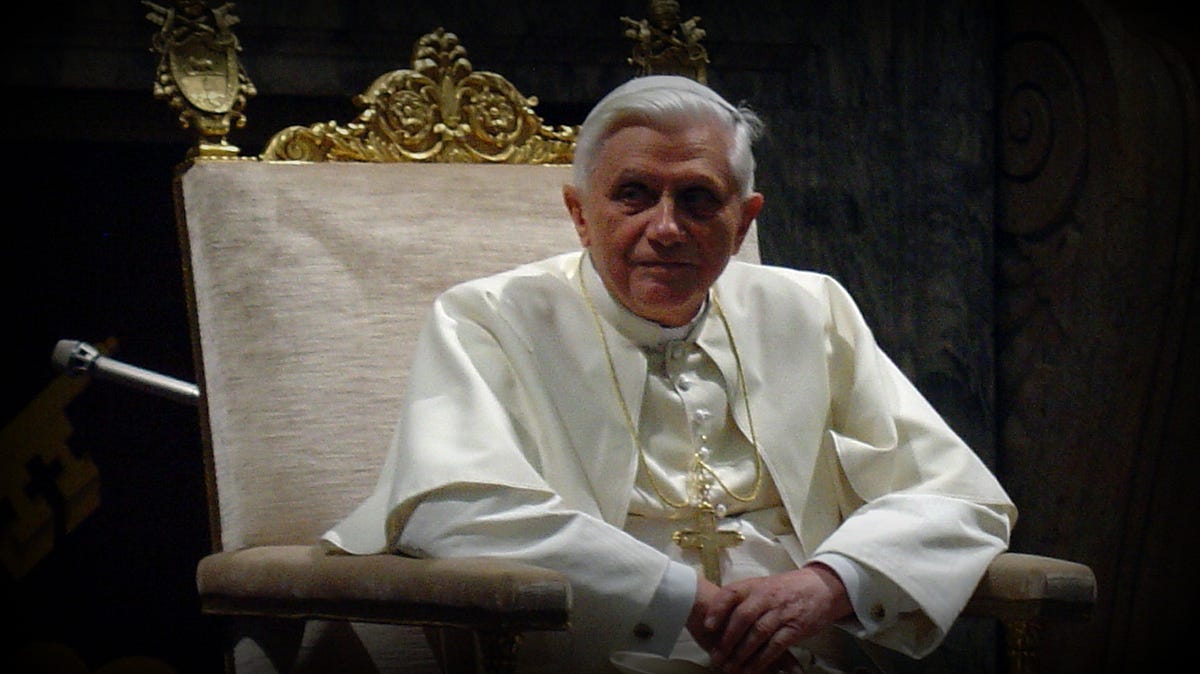Celibacy and the Ontology of the Priesthood
The topic of priestly celibacy is in the news once again with the anticipated release in English next month of From the Depths of Our…
The topic of priestly celibacy is in the news once again with the anticipated release in English next month of From the Depths of Our Hearts, a book (more or less) co-authored by Cardinal Robert Sarah, prefect of the Congregation for Divine Worship, and Pope Emeritus Benedict XVI. While there is some question at this time as to whether Benedict XVI will officially be credited as co-author, the book was a joint project between these esteemed theologians. The book contains their reflections on the priesthood, including the topic of priestly celibacy, according to media reports.
I have not read the book, which is not yet available in English (it will be published in French next week). But the excerpts that have been published online leave me with questions.
Before I go any further with my comments, I want to make clear that I am no way in favor of changing the discipline of clerical celibacy in the Latin Church, which is that married men may be ordained to the diaconate, but only celibate men to the priesthood or episcopacy. This differs from the discipline in the Eastern Catholic and Orthodox Churches which is that married men may be ordained deacons and priests, but only celibate men as bishops.
I am a married deacon of the Latin Rite in the Catholic Church, but I have friends who are Eastern Catholic clergy. They are subject to different ecclesial law and have their own valid traditions. Getting to know and appreciate the differences between our traditions has given me a greater appreciation for the universality of the Catholic Church. And this is what troubles me about some of the excerpts I am reading from this new book. According to a CNA article reporting on Benedict XVI’s contribution to the text:
At the core of his writing is an argument that the sexual abstinence that was merely “functional” for the priests of the Old Testament has been transformed into something “ontological” in the priesthood of the New Covenant...
It’s the word ontological that causes me concern. Ontology deals with the nature of being. To say something is ontological to the priesthood is to say that it is essential to the priesthood; that it belongs to the nature of the priesthood itself. That would suggest that marriage is not just less-than-ideal for the priest, but incompatible with the priesthood itself. And that simply does not correspond to history or current practice when the universal Church is considered.
It is well established that priestly celibacy has Apostolic origins. But it is also a well established historical fact that priestly celibacy has not been universally practiced in the Church, east or west. A celibate priesthood is the current norm in the West, and has been for a thousand years, but married priests were once more common than they are today — and there still are married Latin rite priests, allowed by special provisions granted to certain former Anglican and Lutheran clergy. Meanwhile in the East, a strong tradition of married parish priests arose alongside an equally strong tradition of celibate monastic priests.
The argument that marriage is incompatible with the priestly state is difficult to reconcile with the above reality. Yet that is the argument Benedict XVI and Cardinal Sarah seem to be making, at least according to the excerpts that have been released.
From the same CNA article:
[Benedict XVI] notes that the priests of Israel were required to observe sexual abstinence during their time that they spend leading worship, when they were “in contact with the divine mystery.”
“Given that the priests of the Old Testament had to dedicate themselves to worship only during set times, marriage and the priesthood were compatible,” he says. “But because of the regular and often even daily celebration of the Eucharist, the situation of the priests of the Church of Jesus Christ has changed radically. … From the daily celebration of the Eucharist, which implies a permanent state of service to God, was born spontaneously the impossibility of a matrimonial bond. We can say that the sexual abstinence that was functional was transformed automatically into an ontological abstinence. Thus its motivation and its significance were changed from within and profoundly.”
I have read of the practice in the East of married priests abstaining from marital relations with their wives for a period prior to celebrating the Eucharist (I am not familiar enough with liturgical law of the various Eastern churches to know whether this or a similar proscription is still in effect). However, daily celebration of the Eucharist was not the norm, nor is it the norm in many Eastern Catholic parishes today.
And while daily Eucharist is common in many Latin rite Catholic parishes, and certainly a practice highly to be praised, it must be pointed out that it is not something required of priests. Canon Law requires priests to offer the Eucharist on Sundays and holy days of obligation, but not otherwise. Now, every Latin priest I know chooses to celebrate Mass daily whenever possible. But he is not obligated to. So the suggestion that marriage is incompatible with the priesthood based on the practice of daily celebration of the Eucharist is not particularly compelling.
Benedict XVI is further quoted as saying:
[T]he married state involves a man in his totality, and since serving the Lord likewise requires the total gift of a man, it does not seem possible to carry on the two vocations simultaneously.
Not possible? But what about married Eastern priests? And what about the married priests of the Anglican Ordinariate, or the other former Anglican or Lutheran clergy serving as ordained priests in the Latin Church? A married priesthood may not be ideal, but the fact that married priests do in fact exist and exercise legitimate ministry in the Church means it is certainly possible.
Consider these counter-examples: the Church teaches that only men may be ordained priests. This is part of the dogmatic teaching on the sacrament of holy orders. Exceptions therefore cannot be made. If one were to attempt to ordain a woman, that ordination would simply be invalid because to be male is an ontological requirement of the sacrament.
Likewise wheat bread and grape wine are necessary for the sacrament of the Eucharist. Substitute bread made with rice flour, or Welch’s grape juice instead of wine, and you render the sacrament invalid because the ontological requirements of the sacrament would not be present. Exceptions cannot be made for things that are ontologically necessary for the sacrament.
So the very fact that married men can be and have been ordained to the priesthood, even if this is understood as an exception to the norm, means that marriage is not ontologically incompatible with the priesthood.
So I am confused by the arguments put forth by Benedict and Sarah in this text. And I am troubled. Both men are brilliant theologians. Both have my utmost respect as shepherds of the Church. I have to assume that both of them have full knowledge of the issues I raise here. So I am left scratching my head. Am I missing something? When the full text is published we will have more context in which to read these statements, and maybe that will provide some clarification on these points.
EDIT: To further my point, I wanted to add this statement from Presbyterorum ordinis, the Second Vatican Council’s decree on the ministry and life of priests (paragraph 16):
Celibacy is to be embraced and esteemed as a gift. Perfect and perpetual continence for the sake of the Kingdom of Heaven, commended by Christ the Lord and through the course of time as well as in our own days freely accepted and observed in a praiseworthy manner by many of the faithful, is held by the Church to be of great value in a special manner for the priestly life. It is at the same time a sign and a stimulus for pastoral charity and a special source of spiritual fecundity in the world. Indeed, it is not demanded by the very nature of the priesthood, as is apparent from the practice of the early Church and from the traditions of the Eastern Churches. where, besides those who with all the bishops, by a gift of grace, choose to observe celibacy, there are also married priests of highest merit. This holy synod, while it commends ecclesiastical celibacy, in no way intends to alter that different discipline which legitimately flourishes in the Eastern Churches. It permanently exhorts all those who have received the priesthood and marriage to persevere in their holy vocation so that they may fully and generously continue to expend themselves for the sake of the flock commended to them.




